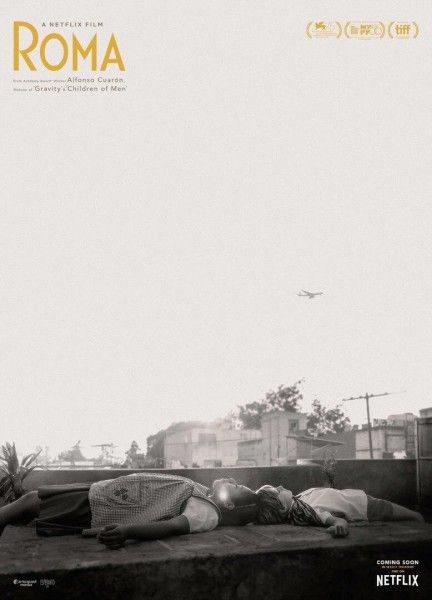Filmmaker Alfonso Cuaron’s long-awaited new film ROMA made its world premiere at the Venice Film Festival, and the reviews are unsurprisingly rapturous. The Oscar-winning director behind Gravity and Children of Men took his time in crafting his next project, opting to dig into his own past to create a semi-autobiographical story about a family living in Mexico City in the early 1970s, seen through the eyes of their housemaid. Presented in stunning digital black-and-white, Cuaron also served as co-editor and cinematographer on the film (his regular DP Emmanuel Lubezki was unavailable due to scheduling conflicts), and by most accounts he’s crafted a great film.
Eric Kohn at Indiewire notes how the film’s intimacy might actually make the fact that it’s releasing on Netflix a positive:
Roma assembles its narrative out of small moments, as the director’s camera pans slowly through various scenes to soak in the distinctive locale, while dispensing tidbits of story details from unlikely places. (It begs for multiple viewings, which could make the controversial decision for Cuarón to release the movie on Netflix actually a godsend, even though it deserves a big screen.)
Over at The Playlist, Jessica Kiang heaped immense praise on Cuaron’s intimate world building:
The highest compliment that can be paid is that, again, it does not feel like this world was created but uncovered just the way it is, as though it had been trapped in amber for five decades, or caught in a sudden Vesuvian eruption, with food left on tables, books half-read on nightstands and dogs frozen mid-jump at the gate. The level of skill it takes to create this effect cannot be overstated: this is personal filmmaking taken to such an extremely minute level that at times it can almost feel prurient, like we’re accidentally eavesdropping on things too private for our ears, like we’ve intercepted an embrace sent back through time and not really meant for us at all.
Time’s Stephanie Zacharek pointed out how the film speaks to Cuaron’s humanistic tendencies:
This glorious, tender picture, a memoir written in film language, is only indirectly about the man who made it. He stands off to the side, in the shadows, beckoning us toward something. Roma is filmmaking as gesture, an invitation to generosity that we perhaps didn’t know we could feel.
Over at The Guardian, Peter Bradshaw writes about how Cuaron traverses a variety of tones that somehow fit together:
Cuarón has an extraordinary way of combining the closeup and the wide-shot, the tellingly observed detail – humorous or poignant or just effortlessly authentic – with the big picture and the sense of scale. At times it feels novelistic, a densely realised, intimate drama giving us access to domestic lives developing in what feels like real time. In its engagingly episodic way, it is also at times like a soap opera or telenovela. And at other times it feels resoundingly like an epic.
THR critic Todd McCarthy echoed many others’ praise of newcomer Yalitza Aparicio in the role of the housemaid Cleo, and of Cuaron’s decision to focus his movie on this particular character:
And yet that’s what makes Cuaron’s decision to place her at the center of his autobiographical film so unusual and compelling: She’s the usually forgotten figure who here has been very much remembered, a decision that seems both personal and political. She’s the lost, normally anonymous figure — the maid, servant, underling — who here ever-so-tentatively emerges as the figure to whom, for the future’s sake, attention must be paid.
Roma may not be the memoir film many might have expected from such an adventurous, sometimes raunchy, sci-fi/fantasy-oriented filmmaker, but it’s absolutely fresh, confident, surprising and rapturously beautiful.
Not all of these first reviews was an out-and-out rave, as Owen Gleiberman at Variety praised the craftsmanship but said he was left a bit cold:
Roma is no mere movie — it’s a vision, a memory play that unfolds with a gritty and virtuosic time-machine austerity. It’s a Proustian reverie, dreamed and designed down to the last street corner and scuffed piece of furniture. Yet I actually think it’s far from a masterpiece, because as a viewing experience it has a slightly hermetic coffee-table-book purity. Every moment comes at you in the same methodically objective and caressing Zen way.
So it sounds as though Cuaron has crafted something wholly unique. The film is in competition at Venice where close friend and collaborator Guillermo del Toro heads the jury, so it’ll be interesting to see how those awards pan out. Look for Collider’s review of ROMA out of TIFF later next week.
ROMA will be released on Netflix and in select theaters later this year.




